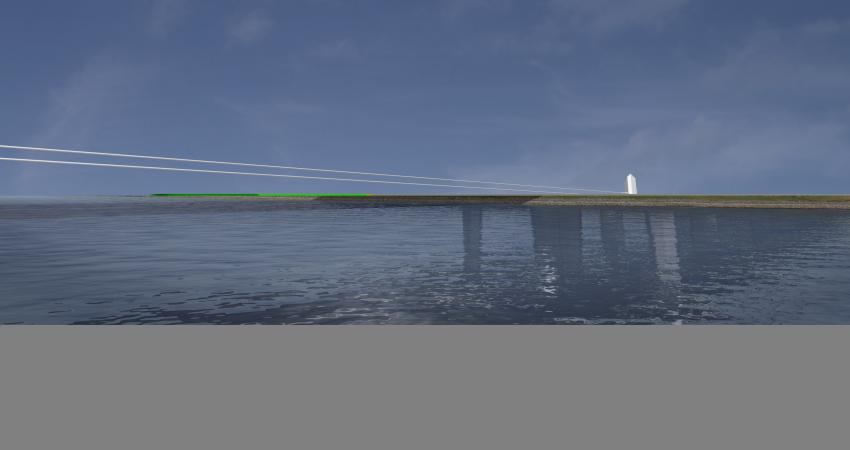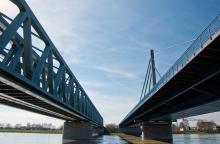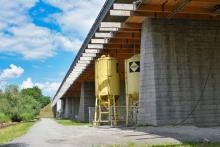
The Rhine River replacement crossing at Duisburg in Germany is now expected to cost more than originally anticipated. The new bridge will measure 802m in length and will carry the important A40 Autobahn link across the Rhine River.
The project was originally expected to cost €395 million. However, the final pricetag for the work is now expected to reach some €500 million.
Building the new bridge will require around 33,000tonnes of steel, which will be supplied by manufacturers in Germany and neighbouring Austria. Firms in Germany as well as the Czech Republic and Hungary meanwhile will use the steel to manufacture the bridge components for the structure.
The new bridge will feature four lanes in either direction when complete in 2026. Three lanes will be opened to traffic in either direction around half way through the project.
The new bridge forms part of an upgrade of the A40 route along a 4.4km stretch. As the A40 is one of the busiest routes in the Ruhr District, linking the A3 and A57, it is important for transport. The A40 connects the nearby cities of Düsseldorf, Essen and Cologne with the Netherlands to the west. Duisburg is a centre for steelmaking and heavy industry in Germany and is also home to one of the world’s largest inland ports, so there is a high volumes of truck traffic passing through the area.
The project is expected to be complete in 2026 and the opening of the new link and A40 upgrade will help to reduce congestion and traffic jams that occur at present, increasing journey times. The new bridge will be 71m high, allowing the passage of large vessels underneath as the Rhine River is a busy waterway.
The existing A40 Neuenkamp Bridge measures 775m in length and was built between 1968 and 1971, featuring just two lanes for traffic in either direction. A cable-stayed structure with a 350m central span, it was designed to carry around 30,000 vehicles/day. However, it now has to cope with 110,000 vehicles/day, while the percentage of truck traffic (around 10% at present) and also the size of the trucks themselves, have increased substantially. Due to heavy wear, the Neuenkamp Bridge had to be closed temporarily to heavy trucks for welding repairs in 2015.










